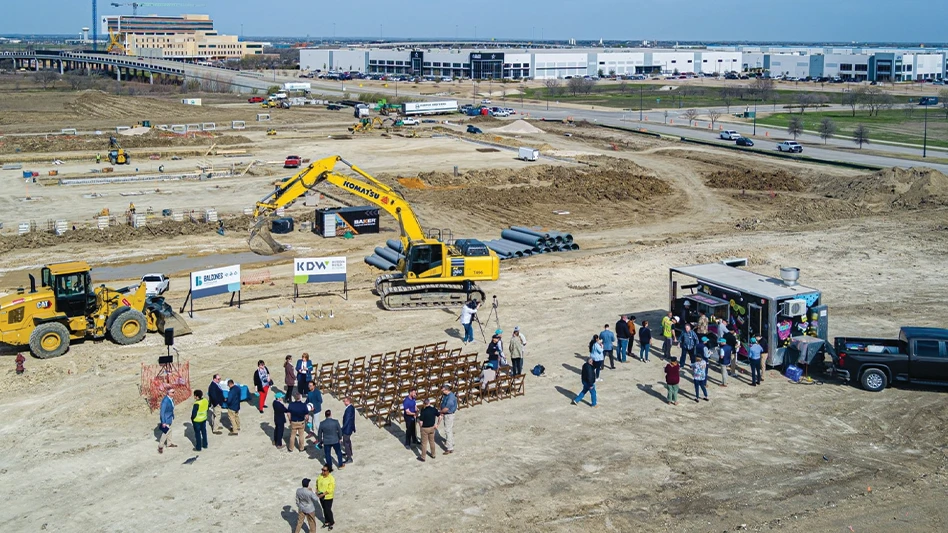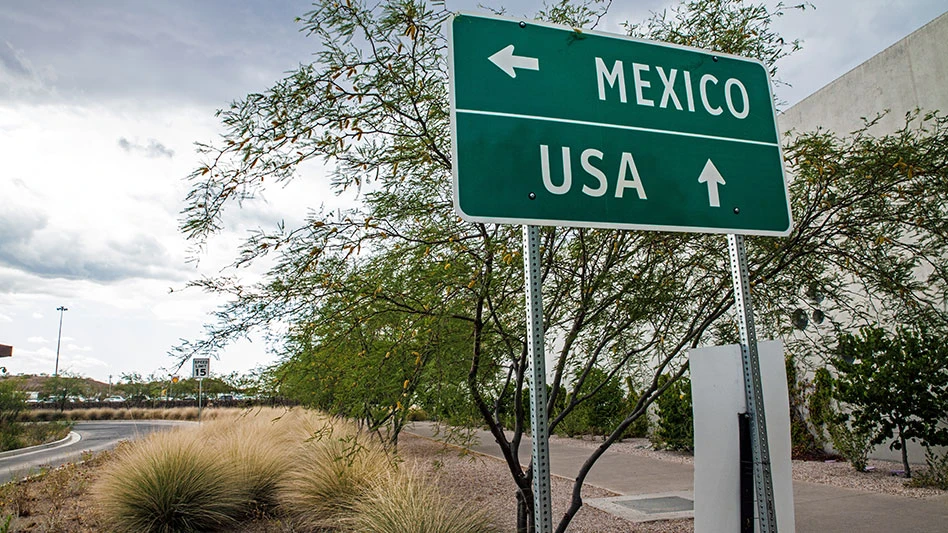Do you remember when moving your freight was a simple process? A buyer asks the logistics department at his or her own company to "get a rate" from Point A to Point B. The logistics department requests rates from the transportation providers they have worked with for years. Upon getting "the rates," the logistics department tells the buyer the lowest rate, and the buyer assumes his or her loads will move at the quoted rate. It’s a simple process, right?
Unfortunately, the good ole’ days are gone. So many factors go into moving products that finding transportation is no longer a simple process. Trucks may be late or never show up at all. Transportation theft is clearly on the rise. Insurance costs are increasing, and coverage is more complicated than ever. Driver and truck shortages are a reality, and a record number of transportation providers have gone out of business in 2008. Transportation rates have risen far more than anyone could have forecasted.
Although price is still a strong component, recycling companies should adjust the way they think about transportation and their approach to transporting their products, viewing transportation as an adjustable transaction.
In recent times, transportation has been considered more or less as a necessary evil. In the August issue of this magazine, a recycler from California is quoted as saying, "The cost of transportation is a big issue…It was a long time coming—we enjoyed cheap freight for a long time." Cheap freight no longer exists for one major reason: higher retail diesel prices.
How can recyclers survive in this new environment? What can they do to get ahead of their competitors? To help recyclers answer these questions, I have outlined some suggestions for improving the transportation sourcing processes.
CHOOSING TRANSPORTATION PROVIDERS
Recyclers should consider how they choose their transportation providers. Recyclers should have copies of their transportation providers’ authorities and should know their Department of Transportation safety ratings. They should also have a current copy of their transportation providers’ insurance certificates and verify that their insurance is valid and covers the freight to be moved. If working with non-asset-based providers, recyclers should know what due diligence practices their transportation providers perform on their behalf. Recyclers should also have an updated contract that outlines the rights and obligations of all parties. Without this information, recyclers may be putting their companies at risk.
Second, recyclers should address the service level of their providers. What sort of contact information do they have? Transportation is a 24-hour/seven-day-a-week job. Clearly, any carrier a recycler works with should have after-hours and weekend dispatch numbers available. KTI has solved many potential issues after hours and on the weekends simply by having cell phone numbers of customers and carriers alike.
Recyclers and their carriers must have a clear understanding of what is expected from both sides. Both sides should know proper loading and unloading times. Before moving freight with one another, they should discuss all of the "what-ifs" that can occur, such as rejected loads, missed delivery appointments and mechanical delays. Getting all of this information up front before moving any freight with a company will help recyclers considerably down the road—it is a two-way street of communications and expectations.
A company’s understanding of freight rates in the transportation market will put it ahead of its competition. A recycler’s logistics department should recognize and communicate to the rest of the organization that markets are "tighter" at certain times of the year. And the company’s transportation providers also should communicate that information to the recycler’s logistics department. For example, melons and onions are coming out of Texas at the same time Florida is entering citrus season and the autumn harvest is underway in the Midwest. All of these situations will affect the rate and capacity of a transportation provider. As a recycler, it is difficult to compete with the farmer who is willing to pay a premium amount of cash up front for a clean truckload that is generally lighter and easier to transport than any scrap or recycled product. Recyclers need to ask themselves if they are ready for these market fluctuations or if they are taken by surprise and hit in the pocketbook.
In requesting rates, recyclers should ask their providers for how long their rates are valid. In the good ole’ days, the rate was valid for an extended period of time. If the transportation provider did not pick up a recycler’s freight at the quoted amount, you could simply leverage your freight against them and find another provider. At present, little exists to prevent a provider from working only for today, since far more loads are available to them than trucks on the road. The balance of power has shifted tremendously.
That brings me to another point in helping recyclers in this carrier-favorable marketplace: Adjust daily operations and daily expectations. Recyclers need to ask themselves some questions that determine a great many of their needs. Answering these questions will give recyclers an advantage over their competition.
UNDERSTANDING NEEDS
Recyclers should consider whether their loads are "appointment based" or if they can be scheduled at a time that is convenient for both parties. It costs far more to move truckloads on a specific day at a specific appointed time. A recycler could spend far less if the load simply needs to move within a reasonable time (i.e. two weeks). Recyclers need to determine if they have the flexibility to take advantage of less expensive transport.
Many customers request transportation for overnight or expedited service. However, the shipper or receiver may not give the carrier reasonable parameters to deliver within that time frame. Recyclers need to know the miles a provider can drive in a day and still expect to make the delivery appointment. Recyclers should ask if the shipping facility is getting the load on the truck in a reasonable time frame. If not, the recycling company should communicate with the receiver to confirm the delivery parameters. Perhaps the most important aspect of expedited service is making sure all parties are working with one another to achieve success.
Recyclers should consider their level of involvement in logistics. Many recyclers work under the premise of, "Out of sight, out of mind." They want the job done correctly and do not want to be bothered with detail. But recyclers must be willing to pay if this is the case, because having a logistics provider handle all aspects related to freight movement comes at a price. On the other hand, if a recycler has the ability to set up its pickups, deliveries and other transport needs, it can fight for a lower price and probably get better rates.
Most recyclers want to have some knowledge of what is happening with their freight because margins are so tight in the scrap and recycling industry. By working in the middle, a recycler’s staff should have a general idea of rates in a given market in the country and should look at alternative service options, such as less-than-truckload (LTL) and intermodal service. A recycler’s staff should also ask the transportation provider to provide these service options. To save money, recyclers should provide correct and confirmed load details, such as purchase order, pickup and delivery numbers. Otherwise, recyclers could be throwing away anywhere from $25 to $200 per load on simple detention costs or, worse yet, have a rejected load that could cost even more.
Recyclers should ask themselves if a high level of service or a low price is more important. If a recycling company has a transportation provider that offers both, it should hold onto them tightly; this recycler is well ahead of the curve. These providers are absolutely essential to a business and should be treated as such. However, if a recycler has not found these types of providers, perhaps it is more important for the company to define what it wants or needs in terms of transportation.
I believe most companies treat their transportation departments either as a profit center for their companies or as a service provider. Although both are important, defining a proper balance is essential to a recycler’s success. Far too often recyclers mix and match these two focuses without proper communication with everyone involved. With communication, proper transportation management, knowledge and good relationships with transportation providers, a recycler can execute both focuses and define its balance in this trying marketplace.
Recyclers must start looking at transportation as a vital cog in the machine. No longer can they assume transportation will simply be there if they just pay a little more than the market dictates. Instead, recyclers need to recognize their freight is not always the most desirable to carriers for many reasons. Recyclers’ freight can be messy and generally weighs more than the average truckload carriers are seeking. For the most part, scrap and recycling companies do not have second or third shifts to load or unload. And at times, recyclers do not treat carriers with respect or as the partner they should be when companies look at how much they spend on this portion of their business.
The antagonistic relationship between shippers, receivers and transportation providers can no longer exist if recyclers want to be successful in these times. When trucks are 15 minutes late for an appointment, why not unload them anyway? If a carrier asks for a reasonable amount of detention and it is a valid request, they should be paid. Special services, such as blind bills of lading or tarping flatbed loads no longer exist. In the past a recycler could tell a carrier to "take it or leave it." Today, the carrier will move on to greener pastures.
Sponsored Content
Labor that Works
With 25 years of experience, Leadpoint delivers cost-effective workforce solutions tailored to your needs. We handle the recruiting, hiring, training, and onboarding to deliver stable, productive, and safety-focused teams. Our commitment to safety and quality ensures peace of mind with a reliable workforce that helps you achieve your goals.
All is not lost if recyclers review their internal processes and adjust their expectations and needs as they relate to trucking. Ensuring success now and in the future is not an easy task, but some remedies are available to recyclers.
ESTABLISHING RELATIONSHIPS
I suggest that recyclers find a transportation provider or two that they trust and can look to at all times. Transportation should be considered a significant portion of a recycler’s outsourcing needs and the vendor as a business partner. Recyclers should decide what is most important for their organizations and find transportation companies that echo those sentiments, working with providers that want to establish a relationship with a company not only in the good times, but in the tough times as well.
Perhaps the best thing recyclers can do is be proactive about their transportation needs while staying true to their economic goals. Far too many years have gone by with shippers, receivers and transportation providers not partnering with each other. Creating a proper service/vendor relationship may just bring the good ole’ days back to the future.
The author is executive vice president of KTI Inc., a third-party logistics firm based in Minneapolis. He can be contacted at rob@ktitrans.com.
Get curated news on YOUR industry.
Enter your email to receive our newsletters.

Explore the October 2008 Issue
Check out more from this issue and find your next story to read.
Latest from Recycling Today
- Smithers report looks at PCR plastic’s near-term prospects
- Plastics association quantifies US-EU trade dispute impacts
- Nucor expects slimmer profits in early 2025
- CP Group announces new senior vice president
- APR publishes Design Guide in French
- AmSty recorded first sales of PolyRenew Styrene in 2024
- PRE says EU’s plastic recycling industry at a breaking point
- Call2Recycle Canada, Staples Professional expand partnership







